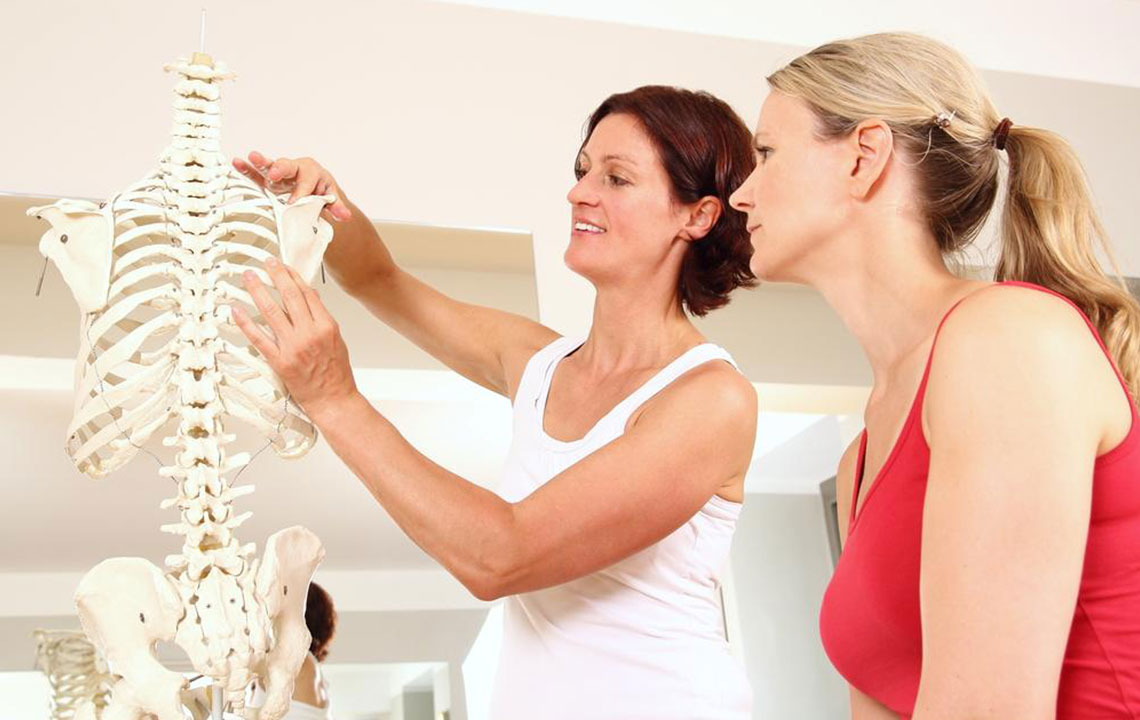8 Lifestyle Changes that Help to Live with Ankylosing Spondylitis
An inflammatory condition, ankylosing spondylitis affects the joints of the spine. It is triggered by severe inflammation of the spinal joints that, in turn, causes immense chronic pain and discomfort. As a result of the fused vertebrae, the spine becomes less flexible and its structure may change to form a hunched posture.
A progression of this condition can also lead to ankylosis. This is the formation of a new bone in the spine that leads to its segmentation. Each section gets fixed and fuses to become immobile. The effects of ankylosing spondylitis can extend beyond the spine and cause inflammation or pain in other joints of the body such as the heels, ribs, hips, shoulders, and feet. In more severe cases, the eyes, lungs, and heart may become affected too. There is no cure for ankylosing spondylitis; however, effective treatment coupled with the right management techniques can aid in reducing its complications. Here are some methods that can work wonders in managing ankylosing spondylitis and helping one live an active lifestyle:
- Dietary changes: There is no specific diet that must be followed for ankylosing spondylitis. However, there are certain foods that can help with the condition. Foods such as whole grains, fish high in omega-3 fats, calcium-rich foods and herbs like ginger and turmeric should be made part of the diet. People with this condition should especially focus on maintaining a healthy body weight as excess weight can put immense stress on the joints and worsen the symptoms. Also, an anti-inflammatory diet can aid in reducing inflammation.
- Regular exercise: Exercising is essential to living well with ankylosing spondylitis. Sitting or standing for long hours can intensify the pain. Practicing low-impact exercises such as aerobic can ease the joints of the body and also help manage the weight. It is imperative to note the signs the body is giving when practicing any kind of exercise. If a move makes the pain worse, it means it is time to stop.
- Physical therapy: Physical therapy is an important part of treating and managing ankylosing spondylitis. This therapy must be taken under the guidance of a professional practitioner who can aid in following a personalized physical regimen. This can include the daily practice of joint mobilization and heat and cold presses. Physical therapy also emphasizes on helping one with managing the symptoms over a long-term period.
- Reduce work’s strain: Physically demanding jobs that involve heavy lifting or working with machines may further cause damage to the joints. It is essential that one finds a job that fits the limitations of the body. Alternatively, adjustments can be made in the current job profile. It must allow for flexibility in postures and positions while letting for enough body movement. One must try and get up while stretching in equal breaks throughout the day. In the case of a desk job, the workplace must be evaluated by a physical therapist who can guide how to minimize strain.
- Sleep well: Living with ankylosing spondylitis puts one at risk of feeling fatigued due to the incessant pain and discomfort in the back. It is imperative to maintain a regular sleep pattern that will help battle the same. It is best to avoid sleeping during the day as it can make it difficult to fall asleep at night. Also, a good posture must be maintained and the spine should not be bent too much when asleep. Pillows can be used for better body alignment and support.
- Maintain a good posture: Over a period of time, people with ankylosing spondylitis are at a greater risk of having a curvature of the spine. Thus, it is essential to maintain good posture and practice the same. The back can be held against a flat surface for a few minutes multiple times a day. Building good core strength will go a long way in combating the effects of ankylosing spondylitis.
- Pain management: This condition is debilitating and having the right pain control formula is essential. The discomfort can also interfere with one’s daily lifestyle and it is important to use the right tools to deal with it. A combination of strategies can work wonders. Ice packs are a good solution for when there are severe flare-ups. Acupuncture and massage too can work wonders in keeping the pain under control. It is best to experiment with different forms and understand the one that brings the best results.
- Positive outlook: Living with ankylosing spondylitis can also take a toll on one’s emotional health. Finding the positive factors in the situation not only helps manage expectations but also reduces the pain. The condition can limit one’s physical abilities but it is best to focus on the things that can be done instead.



